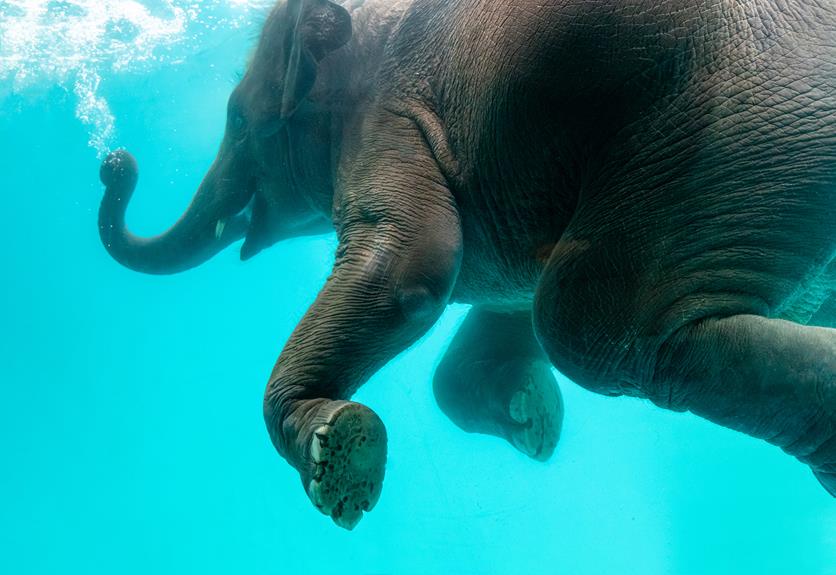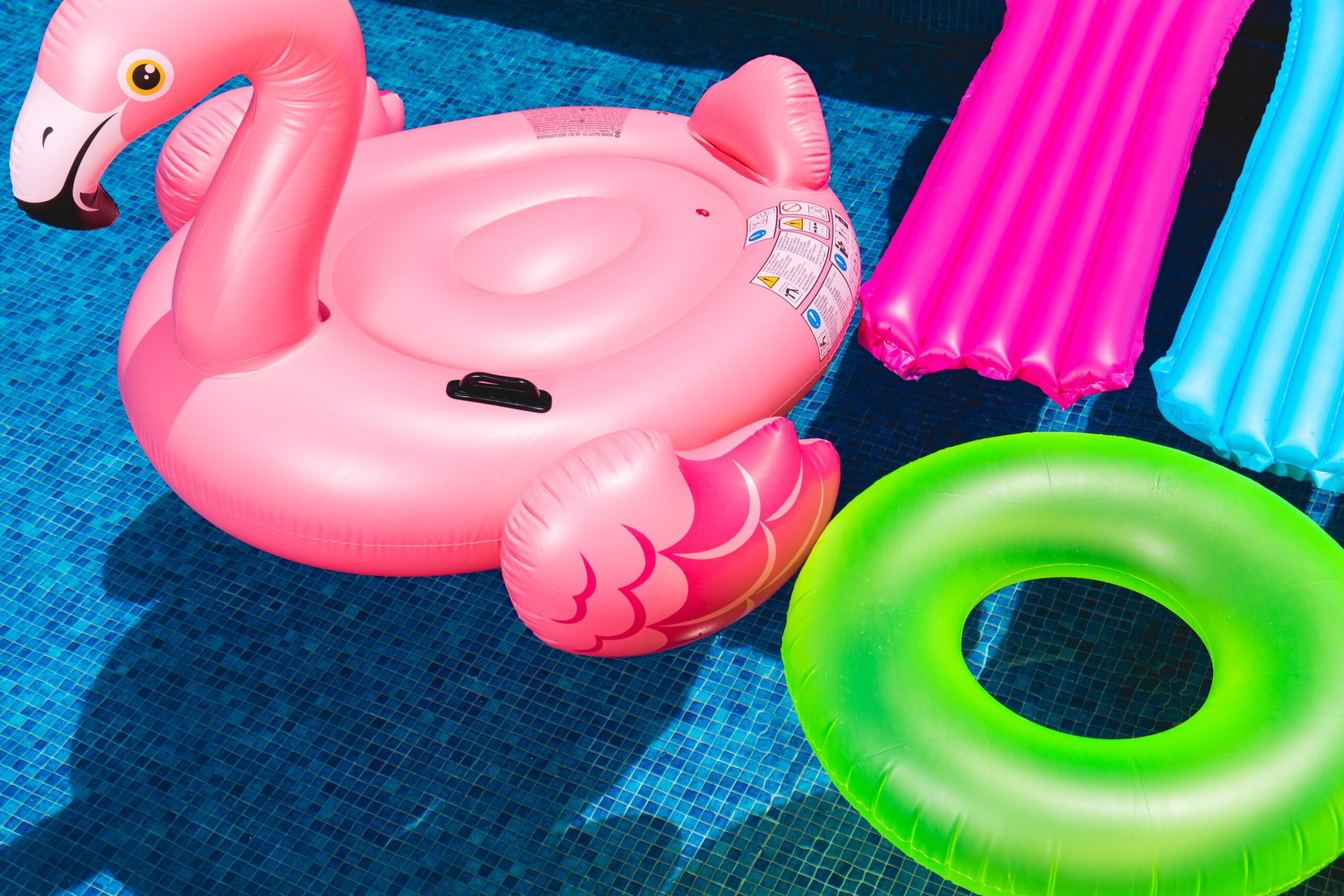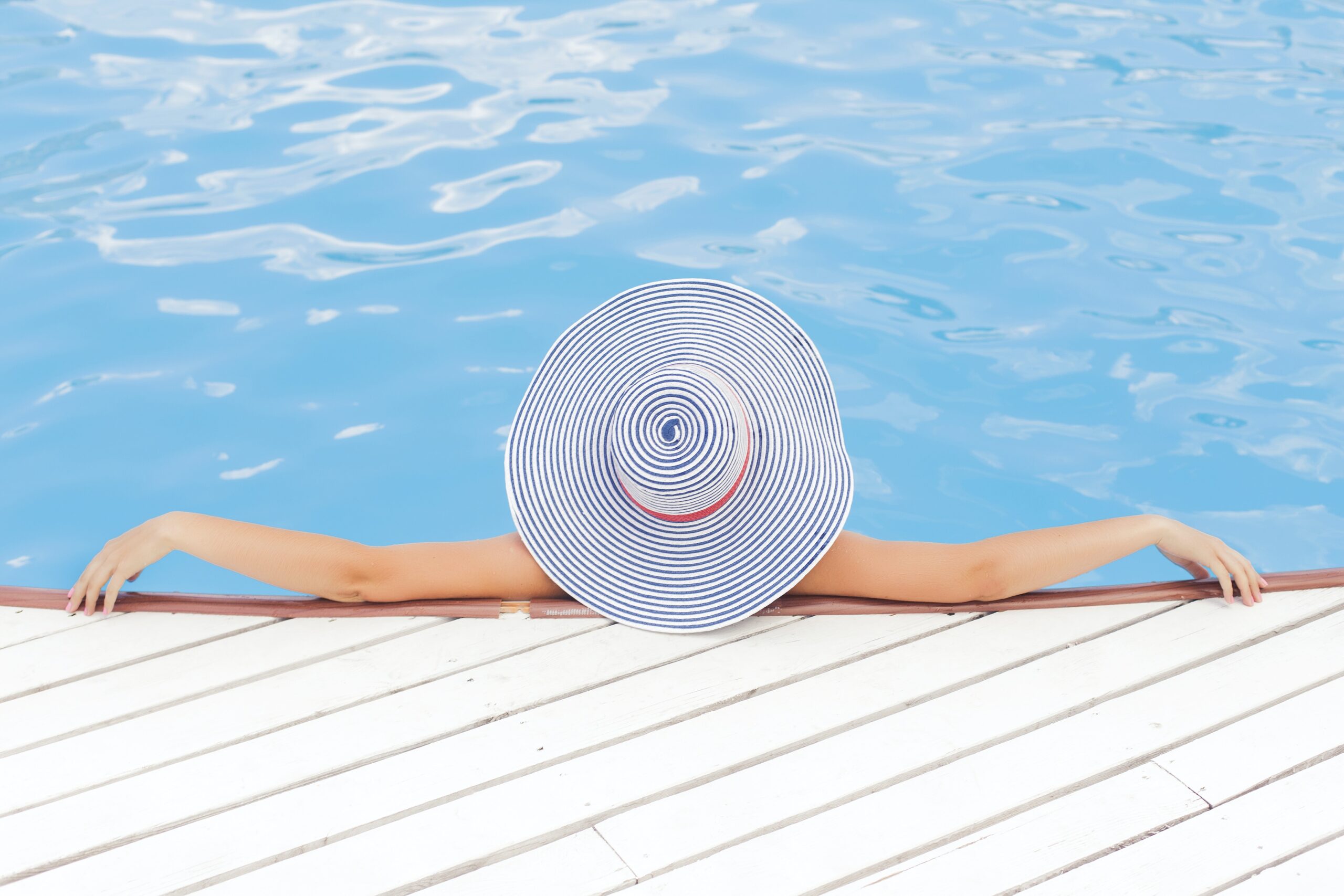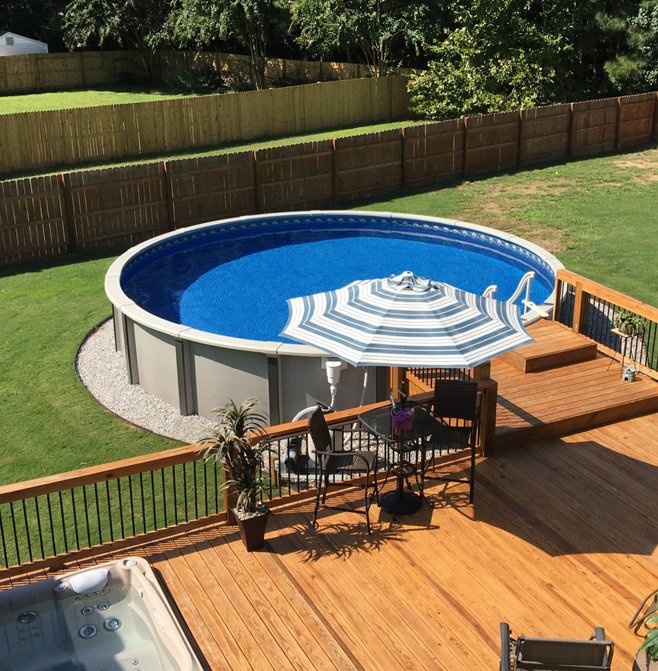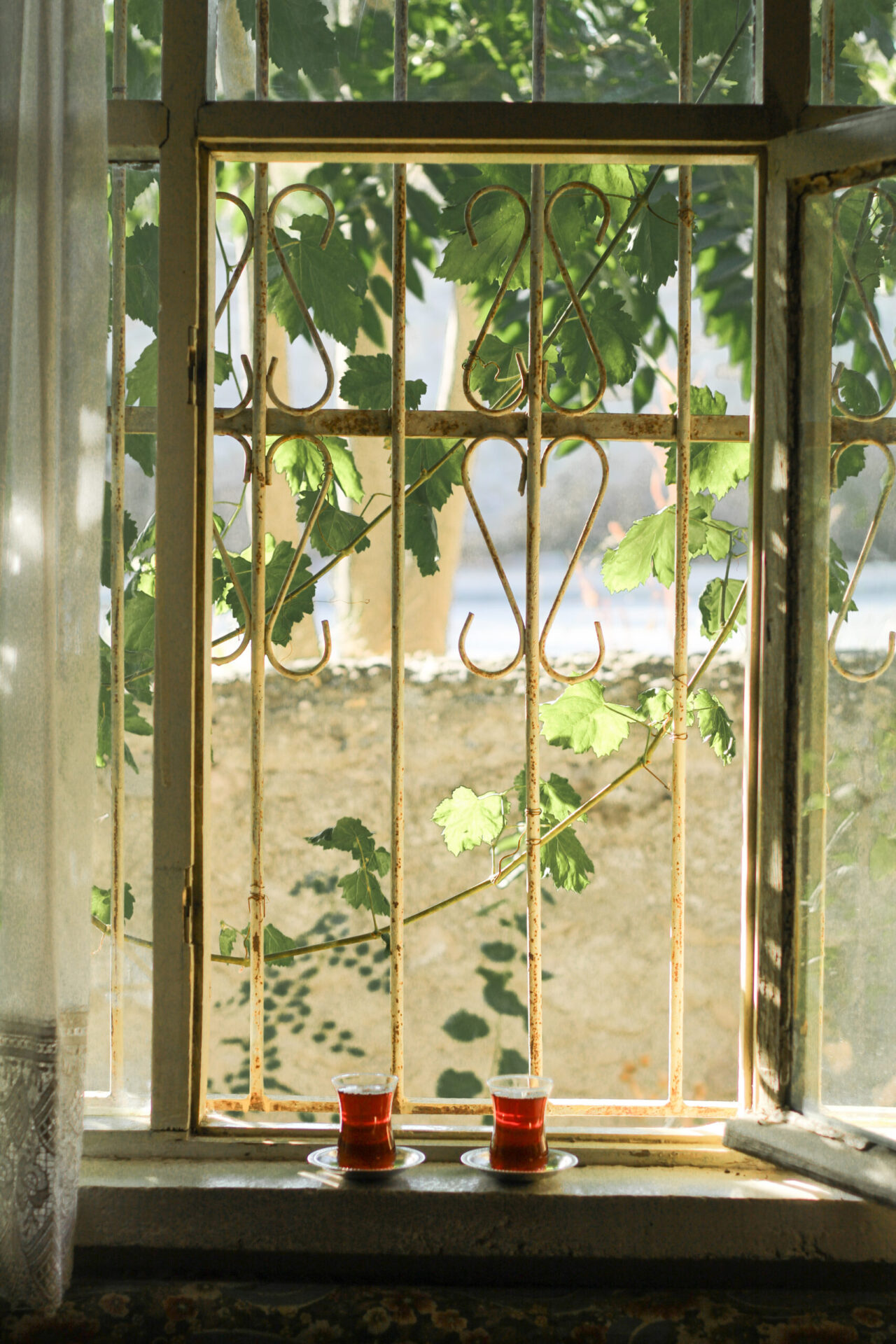Are you wondering how deep your pool should be? Well, you’re in luck! In this article, we’ll explore all the factors that come into play when determining the ideal depth for your pool. From safety considerations to budget constraints, we’ve got you covered. Whether you’re looking to create a relaxing oasis or a space for swimming laps, we’ll provide recommendations tailored to your needs. So, let’s dive right in and discover the perfect depth for your dream pool!
Key Takeaways
- The ideal depth for lounging in a pool is between 3 to 5 feet, allowing for swimming, walking, standing, and floating.
- Family pools should have a shallow area between 2.5 to 3.5 feet for children to play, with a gradual slope to the deeper end to avoid sudden drops. Consider building a separate children’s pool or using an above ground pool for young kids.
- Swimming laps requires depths ranging from 3 to 6 feet, with a recommended minimum depth of 4 feet for freedom of movement. Swimmers should not touch the bottom while swimming.
- Diving pools should meet specific depth standards for safety, with ANSI recommending a minimum water depth of 7.5 to 9 feet for residential diving pools and the American Red Cross advising a minimum depth of 9 feet for all dives. Local regulations should also be considered to ensure diving safety.
Factors to Consider for Pool Depth
When determining the depth of your pool, it is important to consider factors such as swimming activities, age groups, and safety requirements. The pool depth will depend on the purpose of the pool, whether it is for lounging, family use, swimming laps, or diving. For lounging, an ideal depth is between 3 to 5 feet, allowing for swimming, walking, standing, and floating. Family pools should have a shallow area of 2.5 to 3.5 feet for children to play, with a gradual slope to the deeper end to avoid sudden drops. Swimming laps requires depths ranging from 3 to 6 feet, with a recommended minimum depth of 4 feet for freedom of movement. When it comes to diving, specific depth standards must be followed to ensure safety. Now, let’s explore the pool depth recommendations for different purposes.
Pool Depth Recommendations for Different Purposes
When considering pool depth recommendations for different purposes, it is important to understand the specific needs and requirements of each activity. For lounging, an ideal depth of 3 to 5 feet allows for swimming, walking, standing, and floating, while deep pools may not be suitable for relaxation. Family pools should prioritize safety with a shallow area between 2.5 to 3.5 feet for children to play, and a gradual slope to the deeper end. For swimming laps, depths ranging from 3 to 6 feet are suitable, with a minimum depth of 4 feet for freedom of movement.
Ideal Lounging Pool Depth
For lounging purposes, an ideal pool depth for you would be between 3 to 5 feet, allowing for swimming, walking, standing, and floating. This depth provides versatility and comfort, making it suitable for relaxation and casual water activities. Here is a table summarizing the pool depth guidelines for different purposes:
| Purpose | Ideal Pool Depth |
|---|---|
| Lounging | 3 to 5 feet |
| Family Pool | 2.5 to 3.5 feet |
| Swimming Laps | 3 to 6 feet |
| Diving | 7.5 to 9 feet |
Safety for Family Pools
To ensure the safety of your family, it is crucial to consider safety measures when designing your pool. Here are three important factors to consider for pool safety:
- Fencing and Gates: Installing a sturdy fence around your pool is essential to prevent unauthorized access, especially for young children. Ensure the fence is at least four feet high and has a self-closing, self-latching gate that opens away from the pool area.
- Alarms and Covers: Adding pool alarms and safety covers can provide an extra layer of protection. Alarms can notify you when someone enters the pool area, while covers can prevent accidental falls and keep the pool secure when not in use.
- Safety Equipment: Keep safety equipment, such as lifebuoys, life jackets, and a first aid kit, easily accessible near the pool. It is important to have these items readily available in case of emergencies.
Depth for Swimming Laps
Swimming laps requires a pool depth ranging from 3 to 6 feet to ensure freedom of movement and prevent touching the bottom. This range is recommended to comply with pool depth regulations and provide an optimal swimming experience. A minimum depth of 4 feet is generally recommended to allow swimmers to comfortably perform their strokes without their hands or feet hitting the pool floor. The depth can vary depending on personal preference and swimming style, but it is important to maintain consistency throughout the pool for safety reasons. Accurate pool depth measurement is crucial in ensuring the pool meets the required standards. It helps assess the pool’s capacity, estimate chemical requirements, and evaluate repair costs. By accurately measuring the pool depth, you can ensure a safe and enjoyable swimming environment.
Importance of Accurate Pool Depth Measurement
Accurate pool depth measurement is of utmost importance for precise assessments and calculations. It enables you to determine the average depth by taking measurements at different points and ensures accurate estimations of capacity, chemical requirements, and repair costs. Using tools like telescopic poles with depth markers or measuring tapes can help you achieve reliable and precise measurements for optimal pool management.
Measuring Pool Depth Accurately
Measuring your pool’s depth accurately is essential for assessing capacity, estimating chemical requirements, and evaluating repair costs. To ensure accurate measurements, consider the following pool depth considerations:
- Use a telescopic pole with depth markers or a measuring tape for precise measurements.
- Take measurements at different points in the pool to determine the average depth.
- Calculate the average depth by adding all measurements and dividing by the number of measurements.
Accurate pool depth measurements help in determining the pool’s capacity, which is crucial for proper chemical treatment. It also allows for a more accurate assessment of repair costs, as the depth can affect the extent of repairs needed. By considering these pool depth considerations and measuring accurately, you can ensure the efficient and effective management of your pool.
Calculating Average Pool Depth
To calculate the average depth of your pool, add up all the measurements you took at different points and divide the sum by the number of measurements. This method is crucial for determining the overall depth of your pool and is an important aspect of pool design. Accurate measurement of pool depth is necessary for assessing capacity, estimating chemical requirements, and evaluating repair costs. Measuring pool depth helps in determining the average depth by taking measurements at various points. Using a telescopic pole with depth markers or a measuring tape is recommended for precise measurements. Additionally, utilizing a handy calculator specifically designed for measuring the pool’s volume can aid in the calculation process. By following these steps, you can ensure that your pool has the appropriate depth for your specific needs and preferences.
Design Consulting Services for Pool Construction
If you’re interested in building the ideal pool, design consulting services can assist you by working with contractors and providing expertise throughout the construction process. These services offer valuable guidance to ensure your pool meets your needs and preferences. Here are three ways design consulting services can benefit your pool construction project:
- Collaborating with Contractors: Design consultants work closely with contractors to ensure that your pool is built according to the approved design and specifications. They facilitate effective communication and coordination between all parties involved, helping to streamline the construction process.
- Creating Build-Ready Designs: Design consultants use their expertise to create detailed and precise designs for your pool. They consider factors such as pool depth, size, shape, features, and materials to develop a design that aligns with your vision and budget.
- Providing Expertise and Guidance: Throughout the pool construction process, design consultants offer their expertise and guidance. They help you make informed decisions, troubleshoot any issues that may arise, and ensure that your pool is constructed to the highest standards.
Additional Information and Research on Pool Depth and Design
When considering pool depth, it is important to take into account factors such as intended use, age groups, and safety requirements. The depth of the pool depends on the purpose it serves and the people who will be using it. For lounging purposes, an ideal depth is between 3 to 5 feet, allowing for various activities like swimming, walking, standing, and floating. Family pools should prioritize safety and provide a shallow area between 2.5 to 3.5 feet for children to play, with a gradual slope to the deeper end. For swimming laps, depths ranging from 3 to 6 feet are suitable, with a recommended minimum depth of 4 feet for freedom of movement. Diving pools have specific depth standards to ensure safety, with minimum water depths of 7.5 to 9 feet recommended. Measuring pool depth accurately is crucial for assessing capacity, estimating chemical requirements, and evaluating repair costs. Design consulting services are available to assist in building the ideal pool, providing expertise and guidance throughout the construction process. Additional research on pool depth and design can provide further insights into various considerations.
Standard Pool Depth and Depth of Above Ground Pools
For a standard pool, the depth usually ranges from 3.5 to 5 feet, providing a balance between swimming and safety. This depth allows for various activities such as swimming, walking, standing, and floating. Deep pools are not suitable for relaxation purposes as they require constant treading water. To enhance lounging experiences, consider adding a shallow ledge for sunbathing. Safety is crucial for family pools, so it’s recommended to provide a shallow area between 2.5 to 3.5 feet for children to play. A gradual slope to the deeper end avoids sudden drops. For swimming laps, depths ranging from 3 to 6 feet are suitable, with a minimum of 4 feet recommended for freedom of movement. Diving pools have specific depth standards, with a minimum water depth of 7.5 to 9 feet according to ANSI. The standard pool depth of 3.5 to 5 feet provides a balance between swimming and safety.
Factors to Consider in Determining Pool Depth
Consider factors such as swimming activities, age groups, and safety requirements to determine the appropriate depth for your pool. When planning your pool, it is crucial to consider how the pool will be used and who will be using it. The depth of the pool will depend on factors such as whether it will be used for lounging, family activities, swimming laps, or diving. For lounging, a depth of 3 to 5 feet is ideal, allowing for swimming, walking, standing, and floating. Family pools should have a shallow area between 2.5 to 3.5 feet for children to play, with a gradual slope to the deeper end to avoid sudden drops. For swimming laps, depths ranging from 3 to 6 feet are suitable, with a minimum depth of 4 feet for freedom of movement. Diving pools should meet specific depth standards for safety, with a minimum water depth of 7.5 to 9 feet recommended. Take these factors into account when planning your pool to ensure it meets your needs and safety requirements.
Frequently Asked Questions
What Are the Different Factors to Consider When Determining the Depth of a Pool?
When determining the depth of your pool, there are several factors to consider. These include the purpose of the pool, safety considerations for children, budget constraints, upkeep and maintenance requirements, and space limitations. The depth of the pool will vary depending on its intended use, such as lounging, family pool, swimming laps, or diving. It’s important to strike a balance between functionality and safety when deciding on the depth of your pool.
Can the Depth of a Pool Be Customized to Accommodate Specific Needs, Such as Installing Diving Boards or Water Features?
Yes, the depth of a pool can be customized to accommodate specific needs, such as installing diving boards or water features. By considering factors like the intended use, age groups, and safety requirements, you can determine the appropriate depth for your pool. It’s important to balance swimming needs with safety considerations. The average pool depth ranges from 3.5 to 5 feet, but it can be adjusted based on individual preferences. Customizing the pool depth allows you to create a pool that meets your specific requirements.
Are There Any Specific Safety Regulations or Guidelines Regarding the Depth of a Pool?
There are specific safety regulations and guidelines regarding the depth of a pool. These regulations ensure the safety of swimmers, particularly when it comes to diving. ANSI recommends a minimum water depth of 7.5 to 9 feet for residential diving pools, while the American Red Cross advises a minimum depth of 9 feet for all dives. These guidelines are crucial in preventing diving accidents and serious injuries, especially in shallow water. It is important to meet local regulations to ensure the safety of diving activities in your pool.
Is There Any Research Available on How Pool Water Colors Can Impact Aesthetics and Maintenance?
Yes, there is research available on how pool water colors can impact aesthetics and maintenance. Different pool water colors can create different moods and visual effects, enhancing the overall atmosphere of your pool area. Additionally, the color of the water can affect the visibility of dirt, debris, and algae, making it easier or more difficult to maintain a clean pool. Research can provide insights into the best pool water colors for your desired aesthetic and maintenance preferences.
What Are the Pros and Cons of Indoor and Outdoor Pools in Terms of Design and Functionality?
Indoor and outdoor pools have their own pros and cons when it comes to design and functionality. Indoor pools offer year-round usability and protection from the elements. They allow for controlled temperature and humidity levels, making swimming comfortable in any weather. However, indoor pools require proper ventilation and dehumidification systems to prevent moisture-related issues. On the other hand, outdoor pools provide a more natural and open-air swimming experience. They offer ample space for landscaping and sunbathing. However, outdoor pools are subject to seasonal limitations and require regular maintenance to keep them clean and functional.
Conclusion
In conclusion, determining the depth of your pool is a crucial decision that should be based on factors such as the purpose of the pool, safety considerations, budget constraints, and space limitations. By carefully considering these factors and utilizing design consulting services, you can create the perfect pool that meets your needs and preferences. Just like a skilled architect carefully measures and designs a blueprint, accurately measuring pool depth is essential for a successful pool construction project. So, dive into the world of pool design with confidence and create a stunning oasis that will bring you years of enjoyment.
